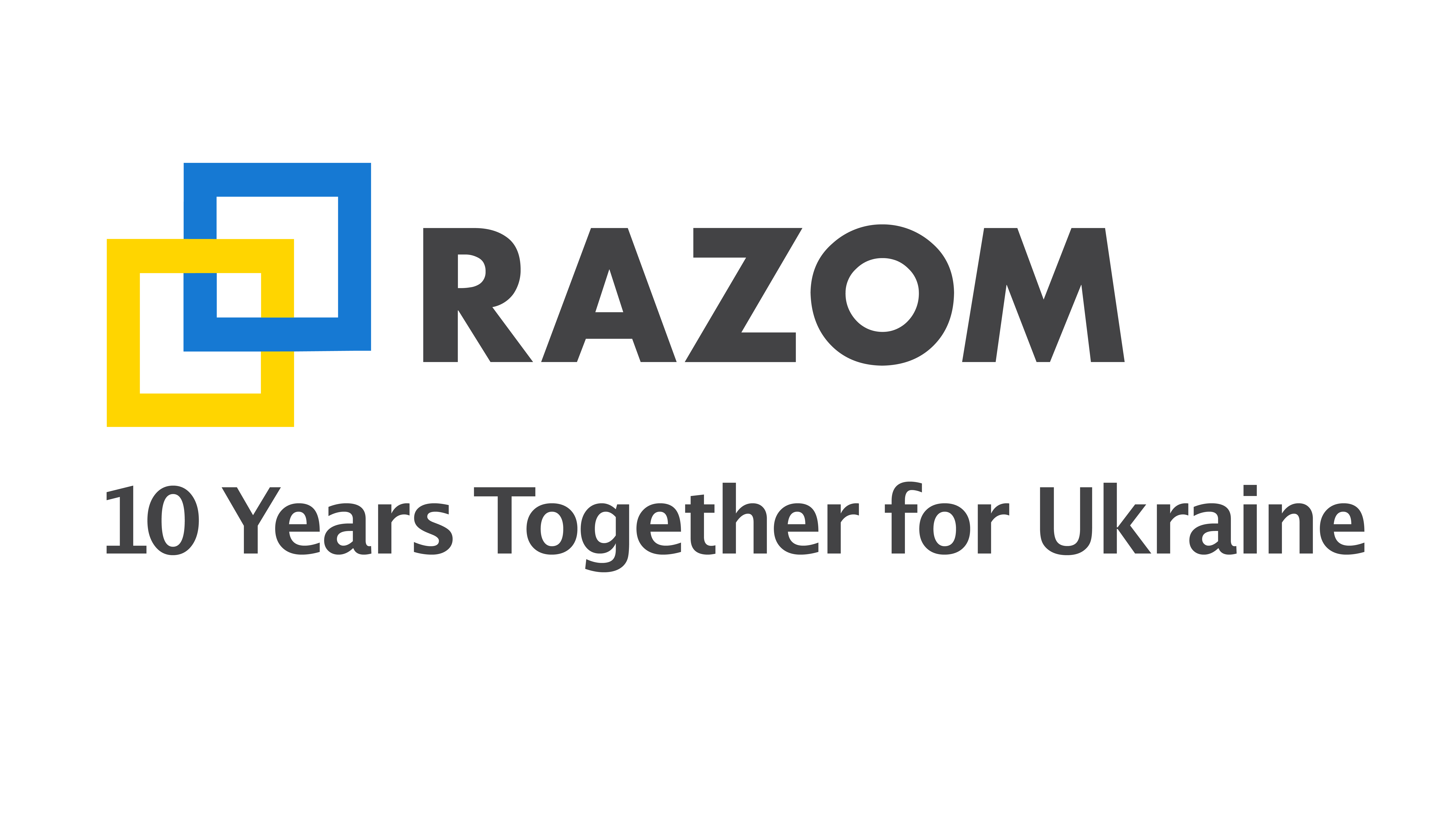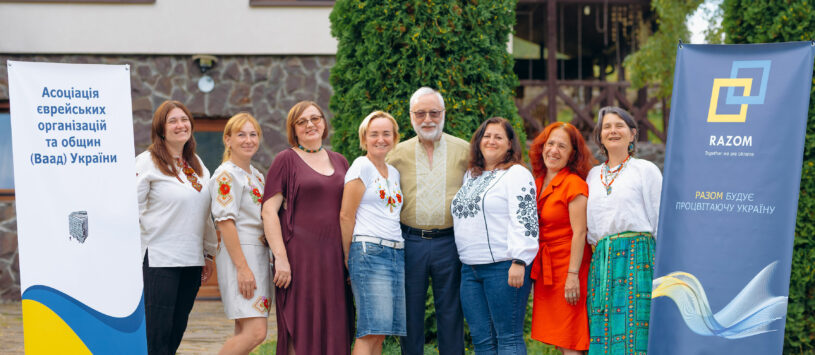After the full-scale invasion in early 2022, Joseph Zissels was evacuating families from the then-occupied Kyiv region and dropping them in shelters for internally displaced people (IDPs).
“I did not like that shelter, as nobody was caring for families there,” Zissels said, noting that all families had severe mental conditions. “They had food, a place to stay, but nothing to do, and were all extremely stressed.”
According to Zissels, about 20% of war-affected civilians develop post-traumatic stress disorder, but timely psychological support significantly reduces the risk.
With over 30 years leading Vaad of Ukraine— the Association of Jewish Organizations and Communities — Joseph used its resources and connections with leading Ukrainian psychological institutions to launch “Recovery During the War.” This initiative provides intensive psychological rehabilitation for women and their children, particularly those who had stayed in occupied territories, endured heavy shelling, or suffered familial losses due to the war.

“Recovery During the War” is a three-week program, offering group and individual therapy for adults and children, art therapy, workshops, and hiking trips. Program sessions take place in a secure setting in the west of Ukraine, accommodating small groups of families.
Every session is unique and adapted to the specific needs of its participants. A week before the start, psychologists receive needed information and arrive at the location earlier to work on the specific program for the coming families.
Since May 2022, “Recovery During the War” has held 56 program sessions and supported 843 families (or almost two thousand individuals). RAZOM Relief provided $100,000 in grants to support seven camps.
The program is continually improving and growing.
 In some cases, three weeks of psychological recovery aren’t sufficient. This year, Vaad partnered with psychological institutions to offer an ongoing, free online consultation course after in-person sessions for those who need it.
In some cases, three weeks of psychological recovery aren’t sufficient. This year, Vaad partnered with psychological institutions to offer an ongoing, free online consultation course after in-person sessions for those who need it.
To manage thousands of requests, the program developed a screening process. Those not needing intense intervention get a “self-support package.” Some families receive online consultations, while those with the greatest needs join in-person sessions. Vaad has also teamed up with 10 qualified psychiatrists to enhance rehabilitation. When therapists deem it necessary, these psychiatrists provide supplementary support.
Following the invasion, the demand for psychological recovery is high in Ukraine. Since the start of the program, 374 psychologists and 56 art therapists have contributed, helping participants and gaining valuable experience for the nation’s ongoing recovery. Vaad constantly organizes seminars and training with international specialists to further develop the skills of psychologists, therapists, and volunteers.
 This past August, with the support of RAZOM, the program started a new project-session working with women who suffered conflict-related sexual violence in occupied territories or in captivity.
This past August, with the support of RAZOM, the program started a new project-session working with women who suffered conflict-related sexual violence in occupied territories or in captivity.
One participant, Halyna, volunteered to help Ukrainian service persons and orphanages for eight years. Under occupation and fearing for her safety and that of her adopted one-year-old son Sashko, who had cerebral palsy, brain damage, and severe cataracts, she sought refuge in a small village near Kherson, where she would not be recognized as a volunteer.
Despite the risks, Halyna continued humanitarian efforts in the village and coordinated the essential aid delivery from free territories. Her active work led occupiers to capture and torture her.
The local families confirmed she was solely helping children, yet before Russians let Halyna go, they committed sexual violence against her. Following her release, Halyna and her son left the occupied territories still under attack.
 “Work(ing) with psychologists was useful — they taught me to look differently at things…This project gave me new strength to live and fight further. I understand there is a lot of work to be done, but there are people ready to help, and I am grateful to them,” Halyna said.
“Work(ing) with psychologists was useful — they taught me to look differently at things…This project gave me new strength to live and fight further. I understand there is a lot of work to be done, but there are people ready to help, and I am grateful to them,” Halyna said.
After the program, she will be helping Sashko get on his feet and plans to visit Bakhmut and Kherson to continue supporting Ukrainian civilians and servicepersons.
Natalia, another participant in the session, was trapped with her two children for six months under occupation in the Donetsk region as Russians did not let people leave. She constantly feared for her two children and often did not know how she would feed them, commenting, “If the shell does not kill them, starvation can.”
Natalia said her children had heavy, adult-like questions and thoughts following the occupation. While in the program, they had a chance to work through their trauma with qualified child therapists.
It also became a space for Natalia to connect with understanding individuals.
“People who did not go through it do not know what was happening to us [in the occupied territories]. But here, in the program, everybody has their own similar story — all somewhat different, but equally painful.”
The program helped Natalia to improve her sleep and calm down. She discovered comfort in fabric drawing and intends to continue the practice post-session.

Joseph Zissels is compassionate and philosophical saying, “Life constantly gets harder [in Ukraine], and we must adapt. We make our program more complex to address the need.”
The psychological rehabilitation program is vital for the functioning of Ukrainian society during and after the war. There are thousands more people on Vaad’s waitlist and it constantly grows.
To increase capabilities, the program needs more funding and support, which is only possible with your help. Please donate to RAZOM today.

